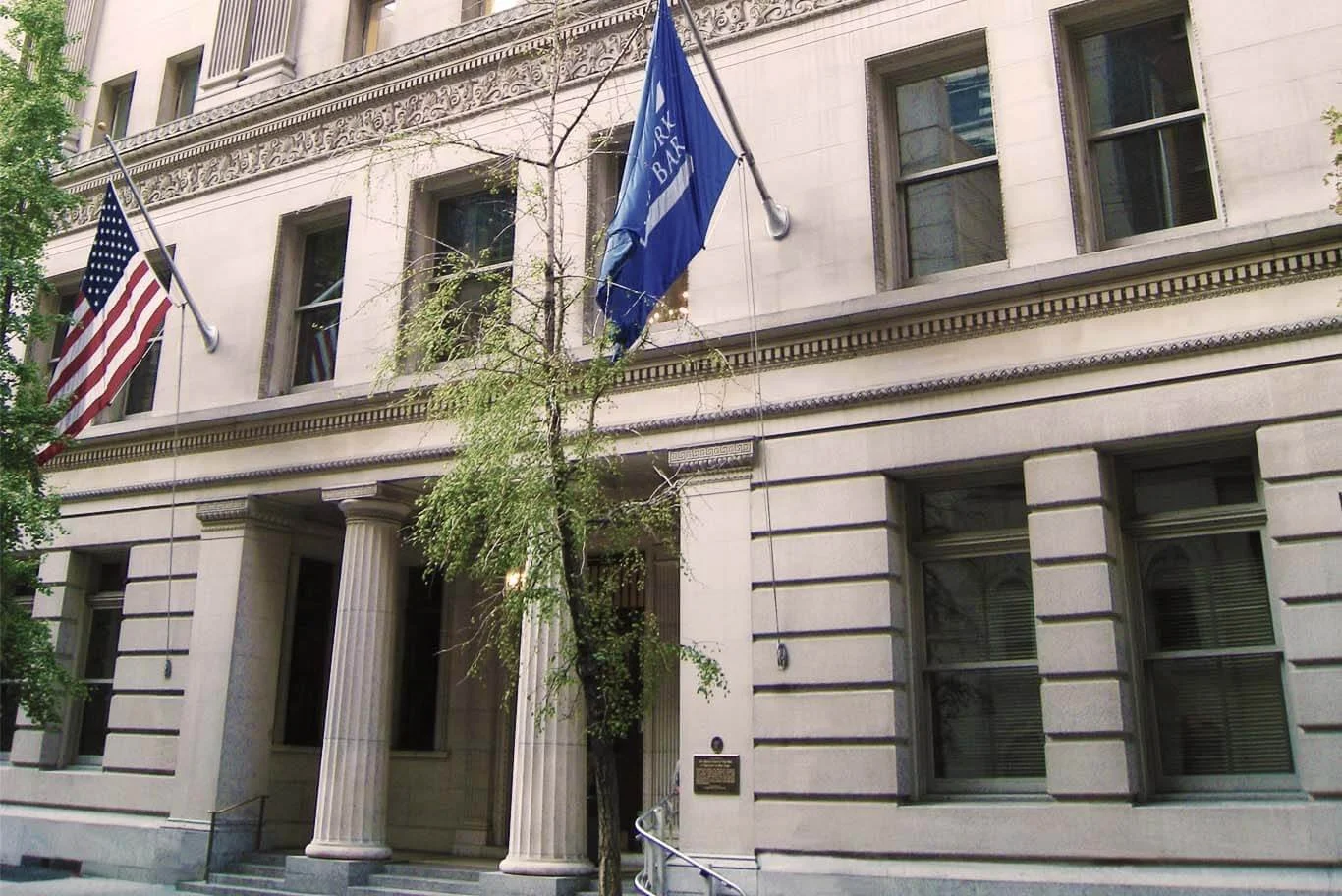NYCBA proposes reforms to courts, criminal justice
/The New York City Bar Association tackles reforms to the courts, criminal justice and government in its recently released 2022 Legislative Agenda. Photo via NYCBA
By Jacob Kaye
The New York City Bar Association recently released its 2022 legislative agenda, featuring policies to reform the courts, criminal justice, state government and other aspects of life in New York State.
A compilation of the studies and policies born from the work of the bar’s 150 committees, all doing policy work in different areas, the NYCBA’s 2022 New York State Legislative Agenda shows the bar’s priorities for the judiciary and law profession, good government, criminal justice, housing and homelessness and business.
Some of the policy proposals listed in the organization’s agenda include increasing funding for civil legal services, restructuring the state’s courts, expanding the right to counsel for tenants facing eviction and modernizing the way class action lawsuits are carried out in New York.
Nearly all of the bar association’s policy categories have seen some type of major reform in the past several years. In criminal justice, major bail reform has been passed and rolled back; in housing, Right to Counsel has expanded citywide; and in the courts, a new committee is beginning to be established that would reform the way allegations of prosecutorial misconduct are handled.
Elizabeth Kocienda, the Director of Advocacy at the NYCBA, said that she thinks the coming year is a ripe time for some of the bar’s more ambitious policy goals.
“I do think that these conversations are getting a fair hearing in Albany and I think people are interested in hearing them,” Kocienda said. “[The committee members] are seeing how the system works from the inside, from their clients and from all different perspectives…So, to see the people that are doing this work every day, and feel so passionately about the need for these changes, it gives me a lot of hope.”
At the top of the bar association’s agenda is the need for reforms within the courts. Among the items within that category is the bar’s request to increase funding for civil legal services, which receives around $100 million annually from the court system.
Though the NYCBA says it appreciates the judiciary’s commitment to the funding, more is needed, particularly to deal with impacts of the pandemic on low-income New Yorkers.
“The need for this funding has only become more apparent as New York continues to address the COVID-19 pandemic and its devastating impact,” the legislative agenda reads. “This devastation has manifested in even greater need for civil legal assistance addressing unemployment and other public benefits; small business dislocation; landlord/tenant and other housing issues; and consumer credit problems.”
In September, the Court of Appeals heard testimony from civil legal services providers, nonprofits and New Yorkers who require legal assistance on the importance of increasing funding.
That month, Chief Judge Janet DiFiore announced that $85 million in funding would be distributed among 81 civil legal services providers across the state beginning at the start of 2022.
The NYCBA also is pushing for increased capacity in the Right to Counsel program, which is likely going to face a stress test with the recent expiration of the state’s eviction moratorium.
“I think this eviction moratorium is going to test the system,” Kocienda said. “It’s been working really well, we've definitely seen a dip in evictions and this process has been moving more smoothly – obviously, COVID really disrupted that, as it did everything. But prior to that, it has been a real game changer and something that is, we think, a huge asset. It just levels the playing field.”
The NYCBA recommends expanding the qualifying income for New Yorkers to get access to the Right to Counsel program, which is available citywide, from 200 percent to 400 percent of the federal poverty line.
The bar association also supports efforts to restructure the state’s court system, something DiFiore has herself proposed in 2019 and has continued to advocate for. As part of the restructuring, the chief judge proposed consolidating the state’s trial courts into a three-court system, consisting of a Supreme Court, Municipal Court and Justice Courts that would serve New York’s towns and villages. The proposal also includes eliminating the city’s criminal courts.
The bar said it sees restructuring “as an absolutely essential reform for the benefit of both the court system and the public.”
As part of that restructuring, the bar association also suggested creating a first-time felony diversion court. The idea for the court came out of the bar association’s Criminal Justice Operations Committee.
The new court would serve people facing their first felony charge and would allow them to connect with other services, including housing, education, job training and therapy, as opposed to being sentenced to prison time.
“It would give people who made a mistake, did something wrong, but probably have underlying reasons for doing it, an opportunity to get help before they're immediately incarcerated,” Kocienda said.
While many of the proposals have support from a sponsoring lawmaker within the State Legislature, the first-time felony diversion court has yet to be taken up by a lawmaker.




